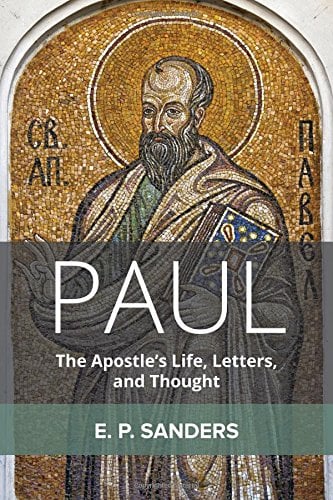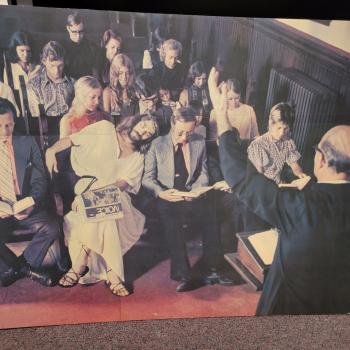Chapter One deals with Acts, which Sanders thinks was composed in the 80s, or latest in the early 90s. There was an explosion of interest in Paul in the 90s, and Acts was probably a stimulus to the collection of Paul’s letters. Acts ranks as a good piece of Hellenistic historiography, more specifically good Hellenistic apologetic historiography and biography (p. 14). Acts presents Christianity as enlightened, harmless and beneficent. He quotes Thucydides on p. 15 but fails to include the important closing phrase ‘sticking as closely as possible to what was actually said’. (on which see the relevant articles in the volume I edited— History, Literature and Society in Acts-— CUP).
He mentions two tendencies of Luke— the tendency to stress that Roman officials found no fault in them, Christianity not being dangerous to the Empire, and the tendency to stress in Luke and Acts that all the important things happen in Jerusalem (p. 17). According to Acts Paul must have lived in Jerusalem from ages 7-16 which is when boys were educated. Sanders claims (p. 19) that all of the major aspects of Luke’s portrayal of Paul are in conflict with our primary source about Paul—his letters. According to Sanders, the most obvious direct contradictions are the notion that Paul persecuted Christians in Jerusalem, because Paul says in Gal. 1.21-23 he was unknown by sight to the churches of Judea, though they had heard ‘the one who was formerly persecuting us is now proclaiming the faith’. He also sees a direct contradiction between the Acts account that Paul left Damascus and went straight to Jerusalem to meet with the apostles, whereas Paul says he didn’t go to Jerusalem but rather to Arabia after Damascus. These supposed contradictions have led Sanders to doubt that Paul was ever educated in Jerusalem, much less highly educated in the Hebrew Bible and in Pharisaic law.
The problems with this sort of reading of Acts include; 1) Paul says that the Judean Christians admitted that Paul had at some point in the past persecuted ‘us’ and the ‘us’ cannot be someone other than the Judeans. It fails to take into account the time lapse. According to Acts, many people were converted in the 30s in Jerusalem and Judea to the following of Christ, including some after the stoning of Stephen. According to Acts, Saul’s persecutions focused on Christians in Jerusalem, not in Judaea in general. Between the time lapse, and the mistake of assuming that ‘the churches of Judea’ simply means the church in Jerusalem, this overlooking of two factors leads to a probable misreading of Acts. 2) Secondly, Luke is not required to include all of Paul’s activities after conversion in his account, and apparently the trip to Arabia did not result in any positive mission results, instead it got Paul in hot water with King Aretas. In short, it is an argument from silence to say that there is a direct contradiction between what Luke reports of Paul’s post conversion activities and what Paul reports. They both agree that at some juncture Paul made a first visit to Jerusalem, and they both agree that he went to Syria and Cilicia thereafter.
Sanders is exercised to establish: 1) Paul is a Diaspora Jew and not a Pharisaic scholar, a ‘scholar yes, but not one who shows specifically Pharisaic concerns’ (p. 22). His letters present him as a man of the Greek-speaking Diaspora. He goes on to dispute that when Paul says he is a Hebrew of Hebrews he means he knew and spoke Hebrew. Sanders seeks to deny this. He disputes the readings of Lightfoot and Hengel. I take his point that Lightfoot is over-exegeting in his Philippians commentary when he suggests that Paul is denying that his family had adopted Greek customs or spoke the Greek language. I also take his point against Hengel who argues in order to be a strict Jew one had to study in Jerusalem. Wrong, as Sanders says, shown by the examples from Alexandria e.g. Philo (p. 27). Sanders admits that maybe Paul had done some study in Jerusalem but doubts he was trained by Gamaliel and that his entire education was in Jerusalem (p. 28). Sanders does admit— it is difficult to prove a negative, i.e. that Acts is simply wrong about Paul’s education.

















